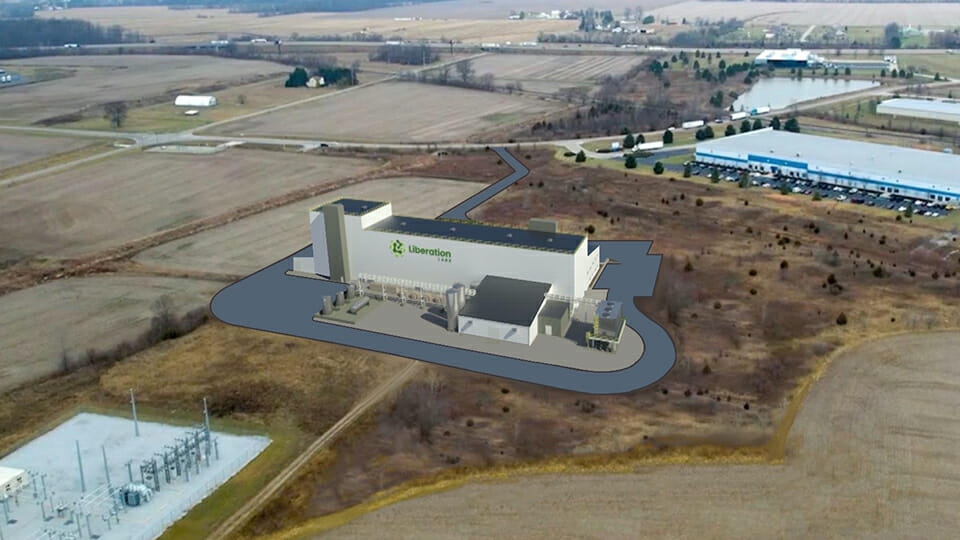CEO: Richmond ‘checked all our boxes’ for manufacturing plant
Subscriber Benefit
As a subscriber you can listen to articles at work, in the car, or while you work out. Subscribe Now
The CEO of New York-based Liberation Labs says locating the company’s first biomanufacturing facility in Richmond brings multiple benefits. The company on Tuesday detailed plans to invest $115 million to build the commercial precision fermentation plant in the Wayne County city and create 45 jobs. The facility will produce alternative proteins, which are used in food products such as almond milk and plant-based meat, as well as agricultural products such as biopesticides.
Mark Warner told Inside INdiana Business that Richmond was chosen from 10 sites nationwide for a handful of reasons.
“There’s three things that are really key to our manufacturing. It’s labor, it’s electric power, and it’s our main feedstock, which is corn dextrose,” Warner said. “So being in the upper part of the Corn Belt, there’s three corn wet mills fairly close. Power’s readily available; a good chunk of it is renewable solar power, which was definitely an incentive. And what really interested in us was the location.”
Warner said many of the other potential locations are in very rural areas, which made it difficult to find a mix of talented production staff and highly technical staff.
“We really liked from the first time we saw Richmond and where it was located what we considered a city that was a good sized city to live in…but also within [an] hour, hour and a half of three metropolitan areas.”
Warner said while the company’s corporate headquarters is in New York, the Richmond facility will eventually become the home of its U.S. operations.
The plant is being built on a 36-acre lot in Richmond’s Midwest Industrial Park and will have a fermentation capacity of 600,000 liters, the company said.
Warner said the facility will use a precision fermentation process to make the alternative protein products.
“[They’re] what we would call the key ingredients that make those products more like the real thing,” he said. “In the case of milk, many of us have been drinking, say, almond milk for decades now. The milks they’re making by precision fermentation have the identical proteins that are in cow’s milk, but without the cow.”
The new jobs will come with an average wage “well above” the state average, according to the Indiana Economic Development Corp. Warner said he is cautiously optimistic that the company will be able to find the talent it needs.
“It is a little higher technology, both for the production level and the technical people. So that often affords us a little more ability, both in pay and other things, to attract people. It’s always difficult to find the right people, but we’re pretty optimistic we’ll be able to do it.”
Liberation Labs has already begun hiring for some positions at the Richmond plant, which Warner said has room for expansion.
“This initial facility is not as big as we hope to ultimately get. There’s no near-term plan to expand, but the site itself will support a much larger build out should we choose to eventually.”
But the company, which closed on a $20 million seed round of funding to advance its plans for the plant, is not stopping in Indiana. Warner said he has global ambitions.
“We picked the U.S. first because it’s where most of the technologies are based. And it’s where most of the markets are, yet these products are generally made overseas because that’s where the facilities are,” he said. “Most of our near term expansion we expect to be in other countries, and that’s to serve our customers demands. If you’re a big company making novel food products, you sell them around the world, and you want your key ingredients made where you’re selling products.”
The company is slated to break ground this spring and expects to reach full commercial production by the end of 2024.
